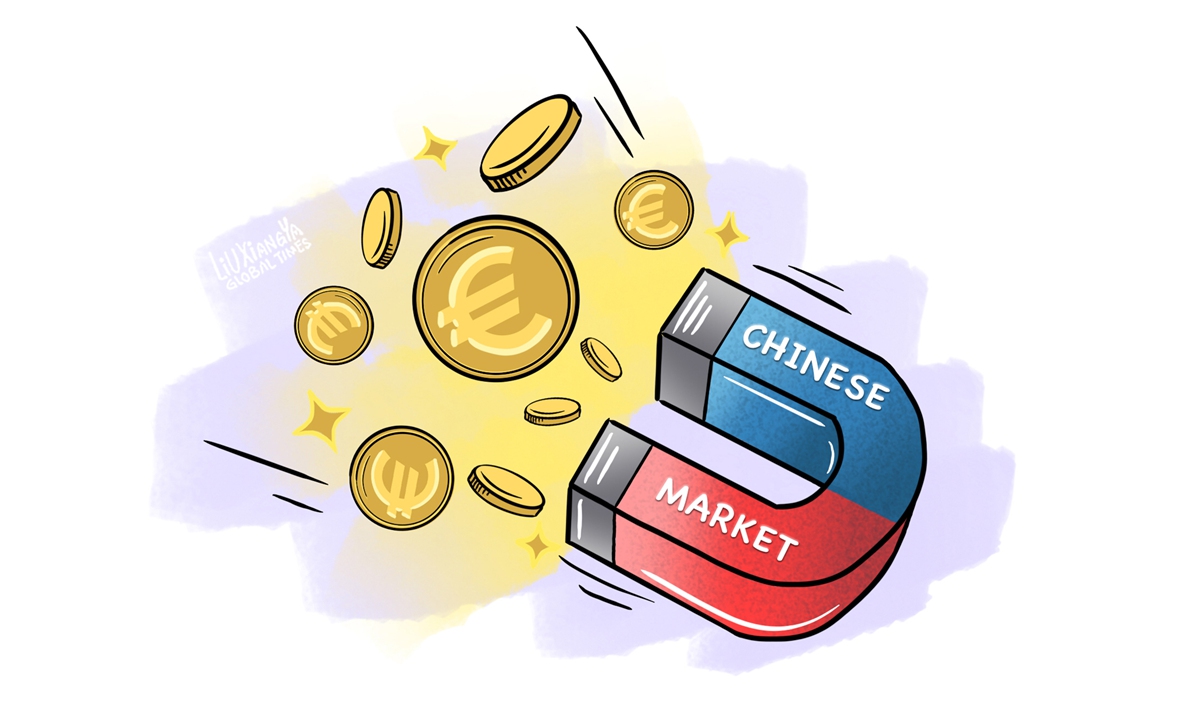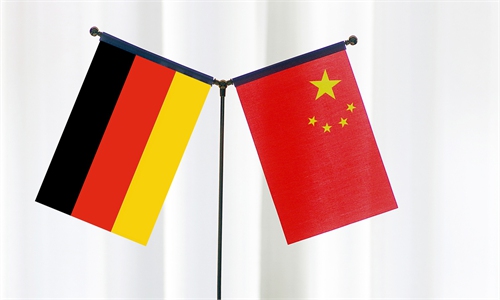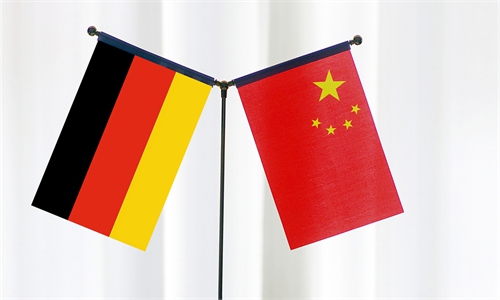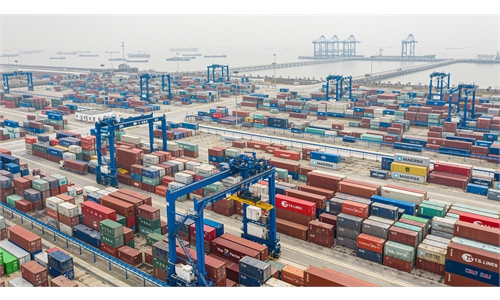
Illustration: Liu Xiangya/Global Times
While some political elites play up "de-risking" from China, German companies have obviously voted with their feet. Their direct investment in China reached a record of nearly 12 billion euros ($13 billion) in 2023, Bloomberg reported.Investment in China as a share of Germany's overall investment abroad rose last year to 10.3 percent, the highest proportion since 2014.
Germany's economy shrank by 0.3 percent in 2023, as costly energy, stubborn inflation and high interest rates took their toll on the largest economy in Europe. During a period of economic contraction, many companies have adopted a cautious mindset toward outward investment and overseas acquisitions. Germany's investment in China is financed mainly by profits that German companies earned in China.
German investors' enthusiasm for China reflects that, on one hand, they are still confident about doing business in the country, and on the other hand, the Chinese market offers a chance to reap huge profits for reinvestment. For many German companies, China is one of the most important markets worldwide.
This situation deserves the serious attention of European political elites, some of whom call on "de-risking" while maintaining engagement with China. Europe used to be a staunch advocate for free trade and globalization, but to be frank, it seems trade protectionism is rising in the continent as politicians play up "de-risking" from China's supply chains, particularly for materials and products needed for its green transition.
The European Commission launched in 2023 an anti-subsidy investigation into imports of battery electric vehicles from China. In addition, the Financial Times, citing EU officials, reported last month that Brussels is considering emergency support measures for its solar panel manufacturing industry, which could include an anti-dumping investigation against China.
Some analysts believe EU trade policy is at a crossroads as Brussels is tending to shift its focus to isolate the EU market from free competition brought by foreign companies, especially Chinese ones. In a discussion on which direction EU trade policy will take - using anti-subsidy and anti-dumping investigations as tools to protect domestic markets, or returning to the track of free trade - China should be a key factor in the equation.
European policymakers need to be aware of the importance of the Chinese market for European companies. If they haven't realized this yet, they should take a look at Germany's investment growth in China.
Although China-Germany trade has undergone some short-term fluctuations as a result of geopolitical tensions and industry chain restructuring, these factors shouldn't alter the long-term trend of bilateral cooperation. Long-term investment projects reflect investor confidence in the Chinese market. Hopefully, this situation will bring the EU more realistic insights and a stronger commitment to advocating and supporting free trade.
Europe has already gone far and should turn back to free trade. Otherwise, its economy will suffer losses, considering the economic complementarity between China and the EU, as well as European companies' dependence on the Chinese market.
Fu Cong, Chinese Ambassador to the EU, was quoted by Bloomberg as saying in January that the EU subsidizes many of its own companies and if China took the same approach, "there are many things that could be subject to investigation."
With its vast market, China is a sound investment destination for EU companies. The two sides should eliminate interference, continue to adhere to free trade, and provide a predictable policy environment for enterprises.
The good news is that China-Europe exchanges at all levels have resumed in recent times and achieved positive results. More and more European leaders have expressed their willingness to oppose protectionism and "decoupling," and support more mutually beneficial cooperation to inject more impetus into the economy. It is hoped this trend can continue to thrive and develop.
The author is a reporter with the Global Times. bizopinion@globaltimes.com.cn



